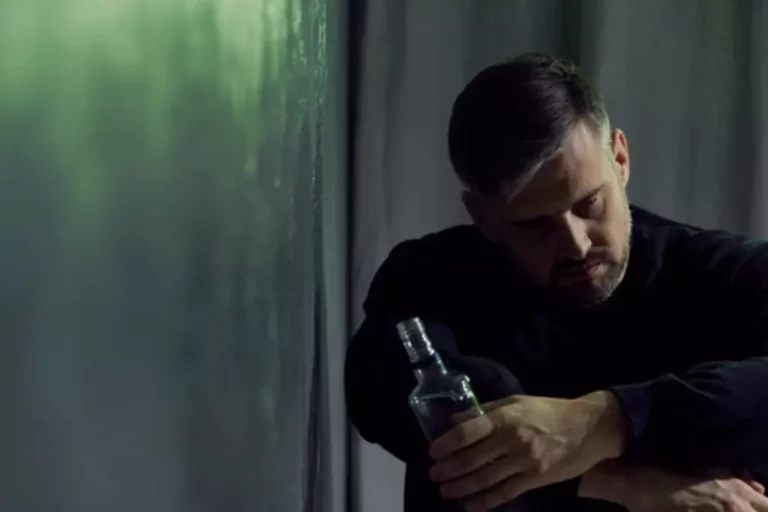
The length of time it takes for a person to recover from AUD varies between individuals. Alcohol withdrawal can be treated with supportive care, medication (e.g. benzodiazepines), fluid support through IV therapy, and by getting plenty of rest. Your insurance plan may cover some or all of the cost of alcohol rehab. Our online health insurance verification system will estimate your in-network and out-of-network deductibles, coinsurance percentages and out-of-pocket maximums.

Social Support and Treatment Programs
- Consider avoiding bars and liquor stores, as well as avoiding routines that involve alcohol.
- For some people, AUD has hurt their relationships, careers, health, finances, self-esteem, and other aspects of their lives.
- Everyone’s body reacts differently, so some people may go through detox faster than others.
- The mental challenge of this stage is not to let anything make you feel defeated.
- Detox and withdrawal are infamous in the addiction community for being physically and psychologically distressing.
- These drugs mimic a hormone that interacts with a region of the brain – the mesolimbic system – to reduce appetite and trigger satisfaction after eating.
Behavioral therapies can help those struggling with alcohol abuse focus on avoiding old patterns and identify the root causes of addiction. Quitting alcohol alone is harder for some than others, but there’s no need to go it alone. If you’re having difficulty sticking to your goal or just want some extra guidance, consider reaching out for professional support. If you turn to alcohol to manage emotional distress, the added overwhelm can prompt the urge to drink, making success seem even more out of reach. Turner notes the importance of bringing along a trusted support person when attending events that involve alcohol. It’s often easier to turn down a drink when you don’t have to do it alone.
Gradually Taper Your Alcohol Intake

Family owned and operated since 2014, Infinite Recovery was founded by Michael & Ylianna Dadashi to give those struggling with addiction a Alcoholics Anonymous second chance and help to rebuild their lives. Clean and sober since 2009, Michael is passionate about helping others discover their authentic self and live a life of true freedom and purpose. Detoxing at home might sound appealing, but it’s important to recognize the value of getting professional help. Anyone who has concerns about the amount of alcohol they are consuming can discuss this with a doctor.
Tips to Safely Detox from Alcohol at Home
- Emerging research suggests that GLP-1 drugs — Zepbound is one such treatment — not only reduce food cravings but may also suppress desires for other substances.
- A rare but very serious syndrome called delirium tremens can occur during alcohol withdrawal.
- Withdrawal progress is monitored through frequent check-up appointments within outpatient clinical settings (e.g., doctor’s office), allowing for the level of care to be escalated if needed.
For many, the safest way to quit alcohol is to attend a medically assisted detox program at a professional addiction treatment facility. New drugs or drug combinations, delivery systems, and routes of administration emerge, and with them new questions for public health. For example, concern is growing that increasing use of marijuana extracts with extremely high amounts of THC could lead to higher rates of addiction among marijuana users. Concerns also are emerging about how new products about which little is known, such as synthetic cannabinoids and synthetic cathinones, affect the brain.
What are the risk factors for alcohol withdrawal?
As always, the only way to avoid withdrawal is to avoid substance abuse entirely. The primary neurotransmitter tied to relaxation is gamma-aminobutyric acid (GABA). GABA also helps produce endorphins in the brain, which produce a sense of well-being.


Some neurotransmitters are inhibitory—they make it less likely that the receiving neuron will carry out =https://ecosoberhouse.com/ some action. Others are excitatory, meaning that they stimulate neuronal function, priming it to send signals to other neurons. The brain is made of an estimated 86 billion nerve cells—called neurons—as well as other cell types. The axon extends out from the cell body and transmits messages to other neurons.
- Excessive alcohol use causes aGABA imbalancethat the brain becomes accustomed to, so it regulates its neurotransmitter production to account for the influence of alcohol.
- It’s important to get medical help even if you have mild symptoms of withdrawal, as it’s difficult to predict in the beginning how much worse the symptoms could get.
- Withdrawal symptoms occur during detox, a natural process where the body works to remove toxins from the system and reach a new equilibrium.
- It should not be used in place of the advice of your physician or other qualified healthcare providers.
- When detox occurs in a medical center, healthcare professionals often use medication to treat the symptoms of withdrawal.
Treatment Options for Alcohol Use Disorder (AUD)

Although the three stages of addiction generally apply to all addictive substances, different substances affect the brain and behavior in different ways during each stage of the addiction cycle. Differences in the pharmacokinetics of various substances determine the duration of their effects on the body and partly account for the differences in their patterns of use. For example, nicotine has a short half-life, which means smokers need to smoke often to maintain the effect.
How Long Does It Take to Detox from Alcohol?
If you are thinking about quitting drinking, talk to your healthcare provider. Medical supervision, behavioral health treatment, and mutual-aid groups can help you through alcohol withdrawal and stay stopped. A rare but very serious syndrome called delirium tremens can occur during alcohol withdrawal. Also known as DTs, an estimated 2% of people with alcohol use disorder and less than 1% of the general population experience them. This article discusses alcohol withdrawal, its symptoms, and potential complications.
Medical Detox Programs For Alcohol
Withdrawal progress is monitored through frequent check-up appointments within outpatient clinical settings (e.g., doctor’s office), allowing for the level of care to be escalated if needed. Most people with mild to moderate alcohol withdrawal don’t need treatment in a hospital. But severe or complicated alcohol withdrawal can result in lengthy hospital stays and even time in the Alcohol Detox intensive care unit (ICU). Healthcare providers typically prescribe short-term medications to relieve the symptoms of mild to moderate alcohol withdrawal. It affects about 50% of people with alcohol use disorder who stop or significantly decrease their alcohol intake.